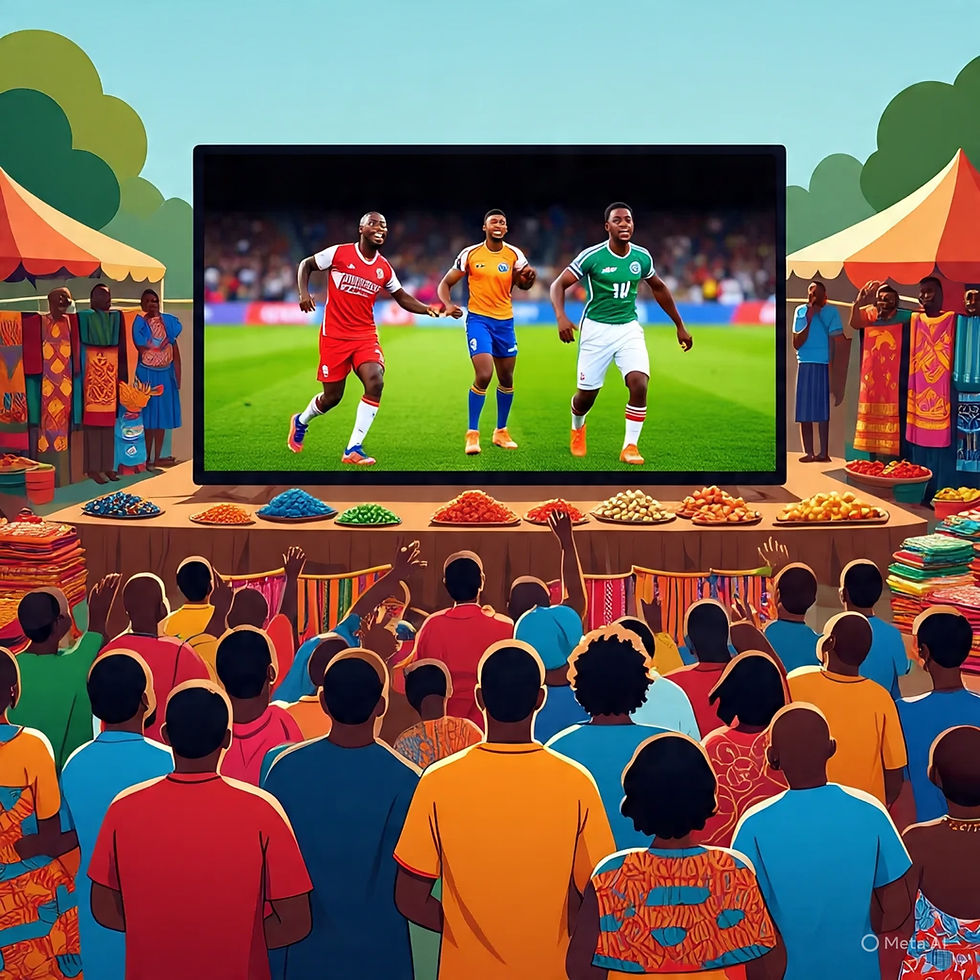Life and History of Ghanaians in Amsterdam: A Vibrant Community
- orpmarketing
- Jun 11, 2025
- 4 min read

The Ghanaian community in the Netherlands, particularly in Amsterdam, forms a dynamic and significant part of the city’s multicultural tapestry. With a population of approximately 26,964 Ghanaians in the Netherlands as of 2022, Amsterdam hosts the largest concentration, especially in the southeast district of Bijlmer. This blog explores their history, lifestyle, notable personalities, institutions, and events that shape their presence in the city.
Historical Background
The migration of Ghanaians to the Netherlands began in the late 1960s and early 1970s, initially with students seeking education. A second wave arrived in the 1980s due to political and economic turmoil in Ghana, followed by family reunification in the 1990s. Amsterdam, particularly Bijlmer, became a hub due to its affordable housing and multicultural environment. Today, Ghanaians are the third-largest minority group in Amsterdam Southeast, after Surinamese and Antilleans.
The community has deep historical ties with the Netherlands, dating back 300 years to the Dutch presence on Ghana’s Gold Coast. This connection is documented in Dutch archives and continues to influence cultural exchanges.
Life in Amsterdam
Social and Cultural Life
Ghanaians in Amsterdam maintain a tight-knit community, often centered around faith-based organizations, cultural groups, and media outlets like Ghanaian radio and television stations. Churches play a central role, serving as spaces for worship and social gatherings. Many first-generation Ghanaians spend leisure time visiting friends and family, while second-generation Ghanaians integrate more with Dutch society, engaging in activities like sports and nightlife.
The Dutch value punctuality and personal space, which can be an adjustment for Ghanaians accustomed to more communal social norms. Joining Ghanaian community groups or attending local events helps newcomers adapt. The high cost of living in Amsterdam, including housing and transportation, poses challenges, but many Ghanaians manage by sharing accommodations or shopping at budget stores like Aldi.
Economic Contributions
Ghanaians in the Netherlands are known for their entrepreneurial spirit, often running small businesses such as shops, cafes, and barbershops in Bijlmer. However, many face barriers like limited access to formal bank loans, relying instead on family and community networks for capital. Despite higher levels of human capital compared to earlier migrant groups, some Ghanaian entrepreneurs operate in low-profit sectors due to dense social networks that limit access to mainstream market information.
High-demand job sectors for Ghanaians include technology, healthcare, and logistics. Learning Dutch is crucial for employment, as many companies prioritize language skills. The Netherlands offers a strong work-life balance, with benefits like paid vacation and shorter work hours, enhancing quality of life.
Education
The Netherlands boasts top universities, attracting Ghanaian students to institutions like the University of Amsterdam (UvA) for humanities, Delft University of Technology for engineering, and Wageningen University for agriculture. These opportunities draw ambitious young Ghanaians, many of whom stay after graduation.
Healthcare Access
Accessing Dutch healthcare can be challenging due to language barriers and differing expectations. In Ghana, doctors routinely perform physical exams, while Dutch general practitioners often rely on symptom descriptions, which some Ghanaians find less thorough. Community networks and cultural organizations help bridge these gaps by providing health education and support.
Notable Personalities
While specific Ghanaian individuals in Amsterdam are less documented in mainstream sources, entrepreneurs like Dominic, who runs a beverage retail business in Bijlmer, stand out. His success in securing a bank loan highlights the potential for Ghanaian businesses to thrive with formal support.
Second-generation Ghanaians are also making their mark, constructing hybrid identities that blend Dutch and Ghanaian cultures. Their stories, as explored in studies like Patrick Asamoah Asadu’s thesis, reflect a growing influence in Dutch society.
Key Institutions
Ghana Union in The Netherlands: Registered in 2021 in The Hague and Amsterdam, this non-profit fosters unity, intercultural exchange, and integration among Ghanaians. It organizes events to promote democratic awareness and collaboration with Dutch society.
Embassy of Ghana in The Hague: The embassy supports the Ghanaian community through consular services and cultural diplomacy, strengthening ties between Ghana and the Netherlands.
Faith-Based Organizations: Numerous Ghanaian churches in Amsterdam Southeast serve as community hubs, offering spiritual and social support.
Significant Events
Cultural Festivals: Ghanaian cultural events, often held in Bijlmer, celebrate music, dance, and food, drawing both Ghanaians and other Amsterdam residents. These festivals showcase Ghanaian heritage and foster integration.
Community Gatherings: Regular events organized by the Ghana Union and churches, such as independence day celebrations, reinforce community bonds.
Amsterdam Dance Event (ADE): While not Ghanaian-specific, some Ghanaian DJs and artists participate in this global music event, contributing to Amsterdam’s vibrant music scene.
Challenges and Opportunities
Ghanaians face challenges like racism, though it’s less overt in multicultural Amsterdam compared to rural areas. Job competition and language barriers can hinder employment, but opportunities in education, entrepreneurship, and high-demand sectors abound. The Dutch welfare system and infrastructure, including healthcare and transport, enhance living standards.
Conclusion
The Ghanaian community in Amsterdam is a testament to resilience and cultural pride. From their historical roots to their modern contributions, Ghanaians enrich the city’s diversity. Through institutions like the Ghana Union, entrepreneurial ventures, and vibrant cultural events, they continue to thrive, bridging Ghanaian and Dutch identities. For Ghanaians considering a move to Amsterdam, joining community networks and embracing Dutch norms while celebrating their heritage can unlock a world of opportunities.




Comments